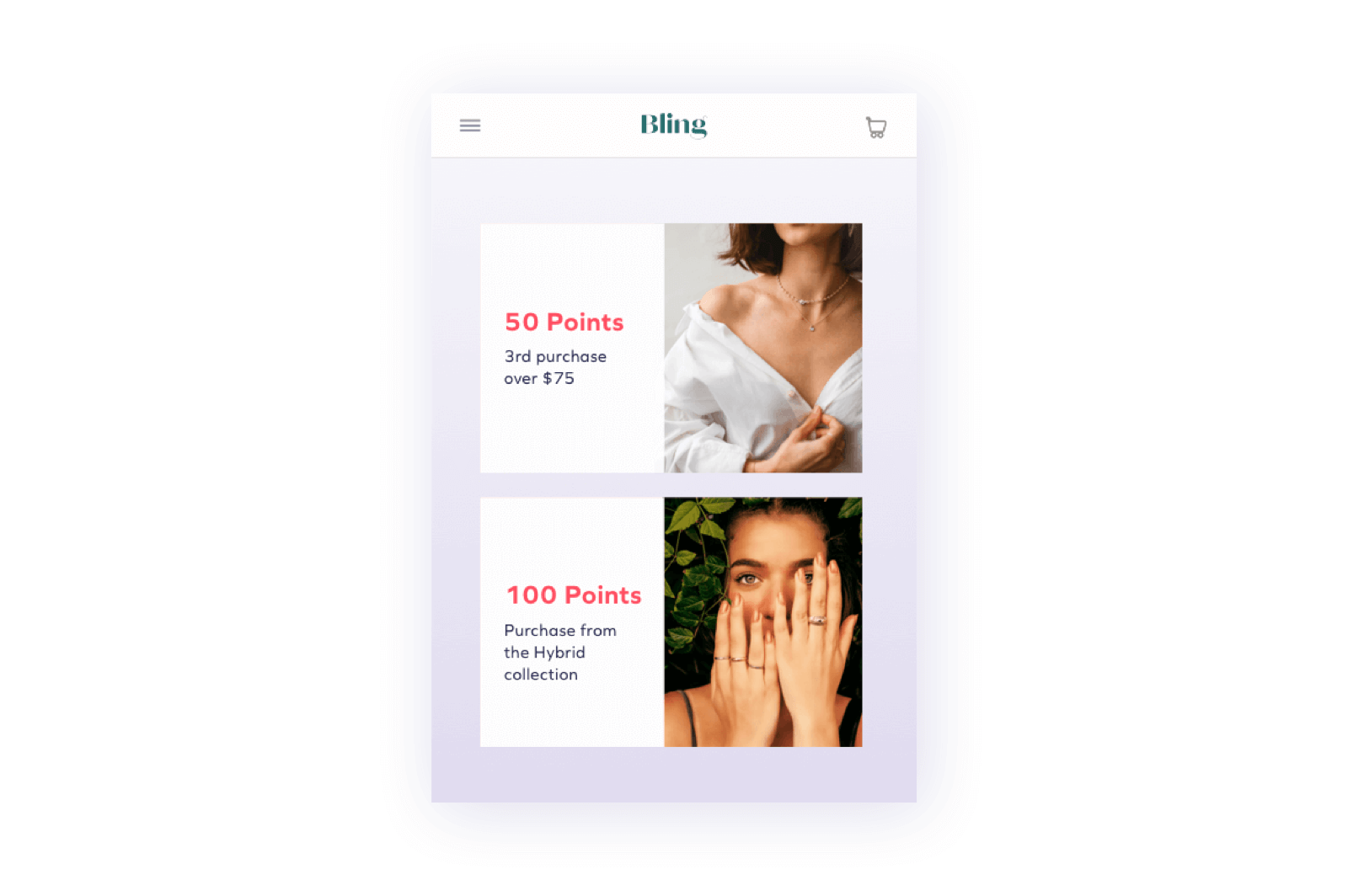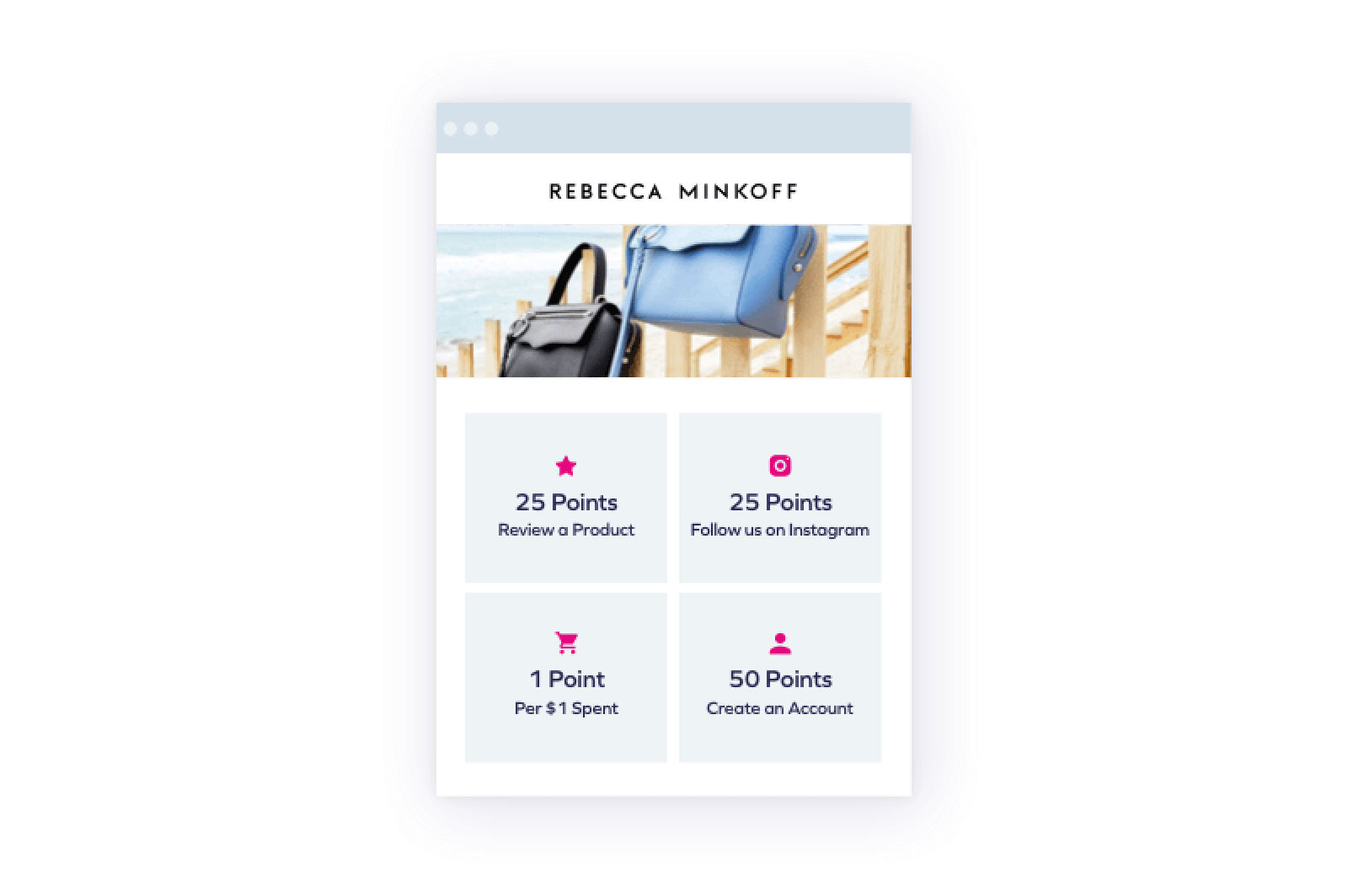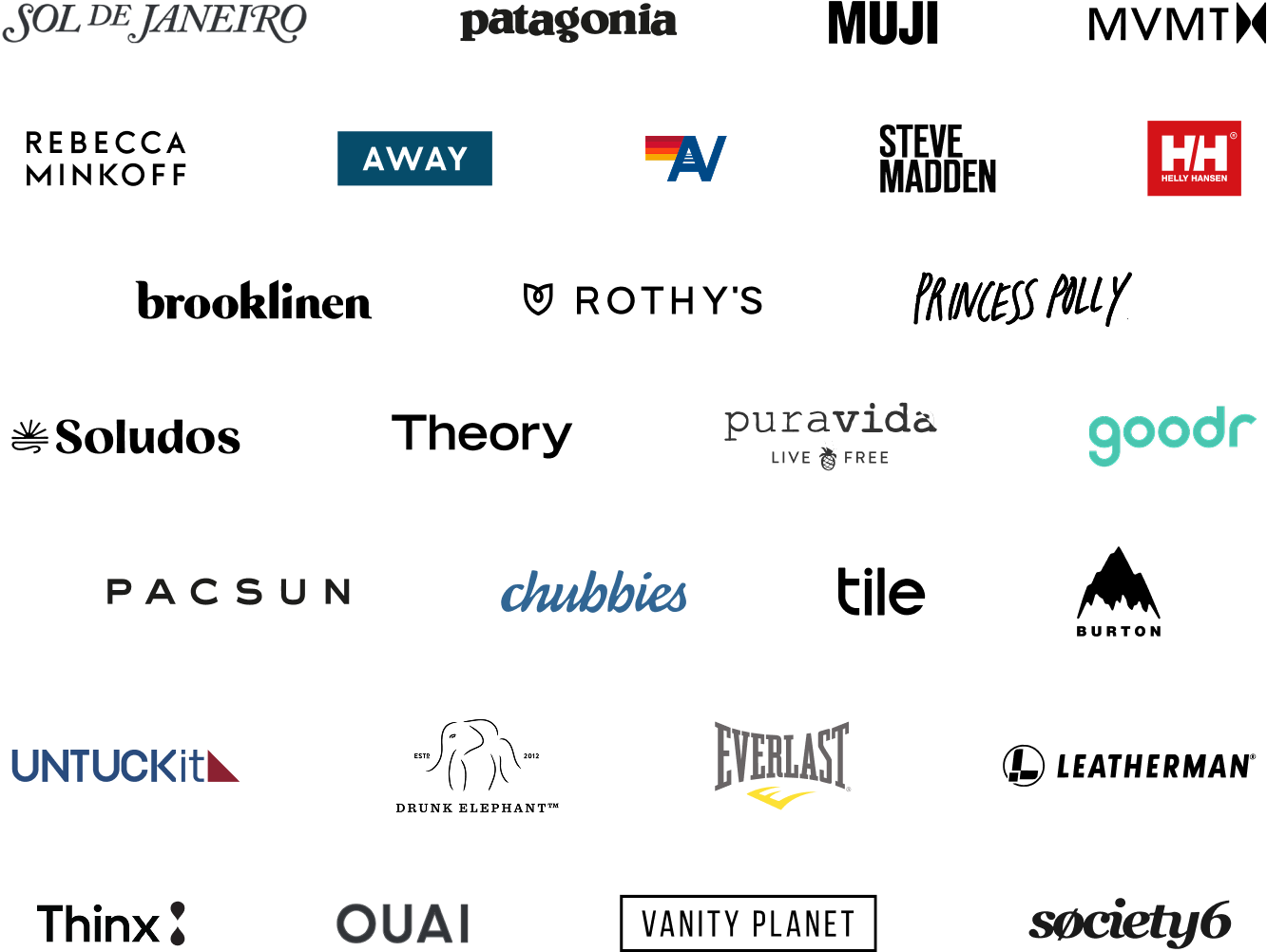10 Benefits of Loyalty Programs
The benefits of loyalty programs go beyond just the transactional. They also increase customer lifetime value, create organic brand ambassadors, foster high-value relationships, and more.
 Quickstart Guide to Loyalty
Quickstart Guide to Loyalty
The benefits of loyalty programs go beyond just the transactional. They also increase customer lifetime value, create organic brand ambassadors, foster high-value relationships, and more.
Most brands know that loyalty programs are beneficial. They increase AOV, repeat purchases, and LTV while also turning happy customers into brand advocates — all in one marketing strategy.
Shoppers prefer to shop from brands to which they’ve built an emotional connection. They’re looking for top-tier experiences that build a sense of trust — they want to feel like the brand recognizes, values, and appreciates them with every interaction.
The proof is in the data: over 38% of consumers prefer to buy from a brand over five times before considering themselves brand loyal. The best way to incentivize those loyalty-sparking purchases fast is by keeping your brand top of mind — and that means rewarding for transactions, engagements, and any other high-value customer behaviors in the form of a loyalty program.
Loyalty programs make the majority (69%) of shoppers more loyal to brands, according to a 2022 survey conducted by Yotpo. Why? Loyalty programs uniquely leverage customer data — past purchases, product preferences, purchase frequency, and more — to create relevant and personalized experiences for each shopper.
No matter where a customer interacts with a brand’s rewards program, whether it’s through an email, text, or an on-site experience, brands can deliver an experience tailored to that shopper, making them feel valued and increasing the chance of repeat purchases.
The benefits of loyalty programs are numerous, as seen in the data. See the benefits in numbers from Yotpo’s recent 2022 State of Brand Loyalty consumer survey:
Now that we’ve explained why brands should create a loyalty program, let’s discuss the 10 loyalty program benefits:
According to Bond research, 71% of consumers say loyalty programs are a meaningful part of their brand relationships. Loyalty programs are an easy way to differentiate yourself from competitors, especially when they’re done well. The better experiences you can deliver and the more value you can add to the buying journey, the more you’ll retain existing customers.
Loyalty programs offer customers perks for desirable behaviors, like purchases. If a product is less expensive elsewhere, loyalty customers get more value for their money and are more likely to buy from your brand. With loyalty programs, you are building a mutually beneficial relationship with each customer who signs up.
Using points and special offers, loyalty programs encourage customers to return or add more items to their orders to “level up” to the next VIP tier; in effect, your AOV can increase substantially.
Brands can also implement punch card campaigns that reward customers for making larger purchases, thus enticing them to add more to their cart. All of these tactics build overall loyalty and help grow AOV over time.

By giving customers reasons to keep coming back — and giving them a great experience when they get there — you’re increasing retention and, by extension, LTV.
Loyalty customers expect brands to engage with them, creating an excellent opportunity to promote sales and exclusive offers. For example, if you have a new reward you’re giving away at 500 points, and a member has 495, you can reach out to let them know how close they are to a free gift.
You’re not just making sales; you’re also forging connections.
FOMO is real, and those who are “in the know” feel like they’re part of an exclusive club. Loyalty programs provide online shoppers with special treatment and a feeling of belonging.
Using a tiered loyalty system, you can offer new products or flash sales to your highest tier first. Your premium customers will feel like they are getting real value from your loyalty program, while your lower-tier members will be incentivized to purchase more and move up the ranks for additional perks.
Happy, loyal customers will engage with your brand beyond purchases. If you want more social media buzz, you can offer incentives to loyalty members who post about your products, likewise for product reviews.
Any behavior you want your customers to take — whether it’s sharing a discount code or signing up for a newsletter — can be incentivized with loyalty perks. Your best customers are the ones who will do the most for your brand.

When you establish deep relationships with your customers, they will connect via additional channels, like leaving reviews, following your brand on social, and even signing up to receive SMS messages.
By connecting your loyalty program with SMS, you can engage your most loyal customers with personalized experiences, like VIP tier-specific messages and exclusive offers.
Loyalty members can even provide feedback on new products or campaigns using surveys incentivized by points. The more engagement opportunities you offer your customers across channels, the more consumers will invest in your products and brand.
Your happy customers are your best marketing tool. In fact, according to a Kantar survey, 93% of consumers trust recommendations from friends or family over brand advertising. Use your loyalty customers to sing your praises wherever possible, whether it’s through a referral link or a positive review.
Imagine this: You’re a skincare brand. One of your loyalty customers belongs to a Facebook group with 5,000 members. Someone posts asking for recommendations for a new moisturizer. Your customer recommends your product. Three other people chime in to say that they love it, too. Not only does the original poster consider buying your product, but so does everyone else reading the comments on that post. If that customer also posts a referral link, they get rewarded for anyone reading who decides to purchase your product.
Current and future changes to iOS 14 and Google cookies will make it difficult for advertisers to gather third-party data. Many will need to turn to organic, community-building alternatives, like a loyalty program.
A loyalty program allows you to own the data on your customer’s buying journey, and it also provides the tools to go a step further. For example, loyalty programs incentivize customers to provide key information — like a birthday or product preferences — in exchange for points or, even better, brand experiences.
Yotpo polled over 2,000 customers and found that most brand loyal shoppers (59.3%) will refer their friends and family to brands they love, creating a new network of potential customers. And remember what we said about consumers trusting friends and family more than brands? It’s a win-win.
A good loyalty program should also include a referral program. It’s easy to implement, and it has the potential to pay off in dividends.
Yotpo’s research on eCommerce stores found that 94% of purchases are for products with 4- or 5-star reviews. This shows how much trust consumers put in the word of their fellow shoppers. How do you get more positive reviews? Offer points to your loyalty program members who are likely happy customers. User-generated content (UGC), like text reviews, photos and videos, can boost brand trust and, ultimately, sales.
Your most valuable customers are the ones who take advantage of your loyalty program the most, so that’s where you should focus your loyalty marketing efforts. While it’s important to win back one-time-purchasers, you should leverage the benefits of rewarding your most loyal customers so that they will become engaged brand advocates.
Read on to learn the ins and outs of setting up a customer loyalty program in Chapter 2.
“Yotpo is a fundamental part of our recommended tech stack.”
 Laura Doonin, Commercial Director
Laura Doonin, Commercial Director








